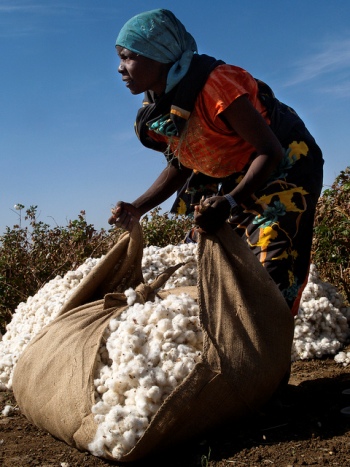Chinese companies to grow one million feddans of cotton in Sudan
August 17, 2016 (KHARTOUM) – Speaker of Gazira state Legislative Council disclosed the Sudanese government and Chinese companies have signed a Memorandum of Understanding (MoU) allowing the latter to grow one million feddans of cotton in Sudan.

Last May, Sudan’s Minister of Water Resources, Irrigation and Electricity, Mutaz Musa, pointed out that the ministry is implementing 155 electricity projects with china at a cost of 10 billion dollars.
He said that his government will fund the $10 billion projects from multiple sources, adding that the five-year plan includes power plants and dams.
On Wednesday, speaker of the Gazira state Legislative Council Jalal Min Allah Gibril said the Chinese companies would cultivate 450,000 feddans in his state besides building textile and ready-made clothing factories.
In 2013, the then Sudan’s minister of agriculture Abdel Halim al-Mutafi, announced that his government signed an agricultural cooperation agreement with Beijing which gives Chinese companies several options to operate in Sudan.
Last June, Sudan’s National Assembly unanimously approved a legal framework agreement that gives Saudi Arabia the right to cultivate one million feddans of land in Upper Atbara and Setait project for 99 years.
Once hoped to be the breadbasket of the Arab world, Sudan’s agricultural sector has continued to deteriorate over the years mainly as a result of negligence, drought, mismanagement, high taxes and the overall economic climate.
Sudanese farmers often complain about the high costs of imported materials such as fertilizers. Many of them were sent to jail as their debt piled up.
Several ambitious plans enacted to bring life to the sector have failed to materialize and critics say the government forfeited a golden opportunity during the oil boom to boost agriculture.
Foreign investors also complain about lack of infrastructure and unfriendly laws which they say deters them from putting money in Sudan’s vast farmlands.
(ST)
